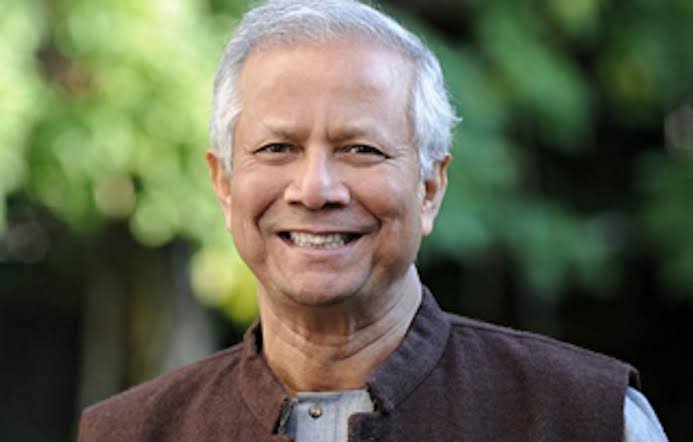Will Yunus flee Bangladesh by 20 Jan 2025?

As the world counts down to the historic inauguration of President-elect Donald Trump for his second term, a wave of anticipation and apprehension sweeps across nations.
For Bangladesh, this event holds extraordinary significance, as Trump’s return to power signals the potential for decisive actions to address the chaos unleashed by the Biden-Harris administration.
Among the many challenges confronting the South Asian nation is the alarming rise of Islamist-jihadist forces, fuelled by political conspiracies and extremist ambitions.
At the centre of this turmoil stands Muhammad Yunus, a controversial figure whose alleged ties to radical elements and aspirations of establishing an Islamic Republic or Caliphate in Bangladesh have drawn global attention.
Yunus and his allies, emboldened by years of international complacency, have pushed Bangladesh to the brink of destabilization. Their attempts to overturn the country’s secular constitution and replace it with a “revolutionary” regime reflect a dangerous alliance of Islamist factions, extremist ideologies, and covert political support.
However, the clock is ticking for Yunus and his cohorts. With Donald Trump’s administration poised to take office, the promise of swift and stern measures looms large, threatening to dismantle their dangerous agenda and restore stability to a region teetering on the edge of chaos.
Nineteen days from today, the much-anticipated inauguration of President-elect Donald Trump will take place with due festivity. The entire world is closely observing this pivotal event as Trump’s second term promises a series of effective measures aimed at reversing the disastrous policies of the Biden-Harris administration.
These policies have plunged many countries, including Bangladesh, into chaos, while enabling the alarming rise of radical Islamist, jihadist, and Caliphate-oriented forces.
Several dangerous terrorist outfits have openly declared their intent to spread terror across the region and beyond, as well as to “invade” India under the guise of implementing the notorious ‘Ghazwa-e-Hind’ agenda.
Meanwhile, Yunus-loyalist led by radicalized students recently announced plans to overturn the country’s constitution on December 31, replacing it with a “revolutionary” regime. Such a move aimed to turn Bangladesh into either an Islamic republic or a Caliphate.
This program was widely publicized on social media platforms by Yunus supporters, as well as extremist groups like Hizb ut-Tahrir, the Al Qaeda-affiliated Ansar Al Islam, Hefazat-e-Islam, and Jamaat-e-Islami. A faction of the Bangladesh Nationalist Party (BNP) also reportedly extended tacit support to this dangerous endeavor.
However, Muhammad Yunus grew increasingly apprehensive after being informed by contacts in the United States that such actions could provoke harsh sanctions against him, his advisors, student demonstrators, and involved civil-military officers.
As a result, the widely publicized December 31 event ultimately turned into a farcical spectacle.
Despite the failure of the December 31 plot, Yunus remains deeply concerned about potential punitive measures from President-elect Donald Trump targeting him and his Islamist-aligned associates. Speculation suggests Yunus may attempt to leave Bangladesh by January 15 under the pretext of health issues, but such manoeuvres are unlikely to shield him from accountability.
Credible sources suggest that President-elect Donald Trump will not tolerate conspiracies involving figures like Biden, Kamala Harris, Barack Obama, the Clintons, and George Soros, which have contributed to destabilizing Bangladesh.
These actions have fostered the rise of Islamist-jihadist forces, such as Al Qaeda, Hizb ut-Tahrir, and ISIS, while inflicting severe harm on religious minorities, including Hindus, Christians, and Buddhists.
As a trusted development partner of Bangladesh, both India and the United States, under President Trump’s leadership, is expected to take immediate corrective actions following the January 20 inauguration.
To address the alarming situation in Bangladesh, President Trump will likely impose stern sanctions on those responsible, including Clinton ally Muhammad Yunus and his Islamist cohorts.
Additionally, collaborators within this harmful nexus will face strict punitive measures, ensuring Bangladesh does not devolve into a terrorist Launchpad or a hub for drug trafficking.
Entities such as Pakistan’s ISI, which actively exploit Bangladesh as a base for terrorism and drug trade, will also face repercussions. Fearing these anticipated actions, Muhammad Yunus has been making frantic efforts to negotiate and shield himself and his associates from international sanctions.
He is particularly concerned about the scrutiny his international business ventures, including Grameen America—where Hillary Clinton is a key ally—are likely to face.
Yunus and his allies have not abandoned their ambitions of transforming Bangladesh into an “Islamic Republic” or “Caliphate” by undermining the country’s constitution. They are reportedly working to form an “Islamic Revolutionary Army (IRA)” modeled after Iran’s IRGC.
Such moves will undoubtedly draw sharp disapproval from President Trump.Reliable sources indicate that Trump’s team has already received substantial evidence regarding:The public display of Al Qaeda and ISIS flags in Bangladesh.
Open calls for violence against ISKCON members and Hindus.Increased attacks on religious minorities.The imprisonment of numerous journalists.
The rising influence of Islamist-jihadist forces in the country.Gross violations of human rights and freedom of expression.Partisan activities of US-funded NGOs openly supporting Yunus and his extremist allies.
Threats from jihadists and Islamist forces to invade India and implement the “Ghazwa-e-Hind” doctrine.
The arrest of Al Qaeda operatives from Bangladesh in various parts of India.Why Yunus might flee Bangladesh by January?Yunus-loyalist leaders of the “Anti-Discrimination Students Movement” had set December 31, 2024, as the deadline to abolish Bangladesh’s constitution and establish a revolutionary government.
This would have transformed secular Bangladesh into an “Islamic Republic” or “Caliphate”. However, due to mounting internal and external pressure, Yunus urged his student leaders to delay their plans indefinitely. The student leaders, however, set a new deadline of January 15, 2025, to fulfill their demands.
This leaves Yunus with a stark choice: comply with the student leaders’ demands and overthrow the constitution, or face backlash from both domestic forces and the international community.
Any move to abolish the constitution would render all constitutional positions, including those of President Mohammed Shahabuddin and Chief of Army Staff General Waker Uz Zaman, vacant, allowing Yunus’ allies to install their chosen individuals.
Such actions would likely prompt swift sanctions from the US and other Western powers, designating Yunus’ movement a terrorist entity. Investigations into crimes against police officers, Awami League leaders, and religious minorities would further escalate.
The looming consequences for Yunus
For Muhammad Yunus, 2025 is shaping up to be a year of unprecedented challenges. Domestically, he faces immense pressure, while President-elect Donald Trump’s administration is expected to impose stringent measures against him.
All of Yunus’ commercial ventures, including Grameen America and others, will likely come under intense scrutiny. Financial ties between Yunus, Hillary Clinton, and Clinton-affiliated organizations are also poised for investigation.
In the coming months, Yunus may find himself embroiled in legal battles across the United States and other jurisdictions, facing a cascade of criminal charges. The era of impunity for Yunus and his network appears to be nearing its end.
The clock is running out for Muhammad Yunus and his web of conspirators who have jeopardized Bangladesh’s stability and security with their reckless and extremist agenda.
The days of impunity are numbered as President-elect Donald Trump’s administration prepares to take office, armed with evidence and resolve to address the grave threats posed by Yunus and his Islamist-jihadist allies.
From fostering radical ideologies to undermining secular governance, Yunus has positioned himself at the centre of a movement that threatens not only Bangladesh but also regional and global stability.
With Trump’s firm commitment to combating terrorism, protecting religious minorities, and restoring order in volatile regions, Yunus and his collaborators can expect swift and unforgiving consequences.
Whether through sanctions, international investigations, or the dismantling of extremist networks, the Trump administration will undoubtedly act decisively to prevent Bangladesh from becoming a haven for terror and chaos.
For Yunus, the spectre of accountability looms large, both at home and abroad. The international community, under Trump’s leadership, is likely to expose and dismantle the financial and political networks that have sustained his ambitions.
As Bangladesh teeters on the edge of a constitutional crisis, the impending actions of the United States signal hope for a return to stability, security, and secular governance.
The year 2025 may very well mark the beginning of Yunus’ reckoning—a long-overdue confrontation with the consequences of his actions.




